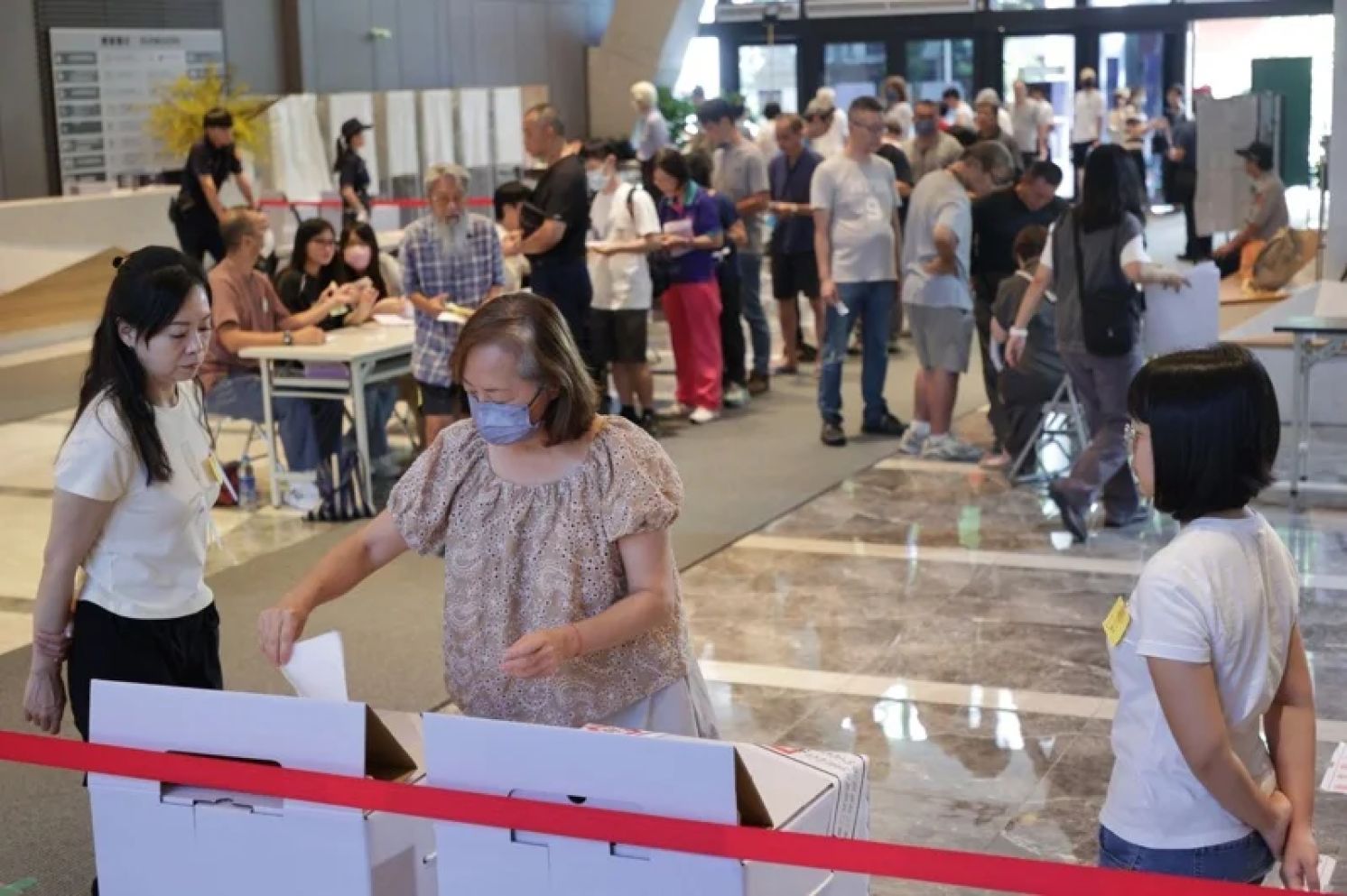
Ogasawara: DPP's 10-Year Advantage Has Ended
The Storm Media, August 24, 2025
With the conclusion of the August 23 vote, the entire recall movement finally came to an end. In the first wave of recall cases on July 26, all 24 legislators and one mayor successfully weathered the recall crisis. On August 23, the recall cases targeting seven Kuomintang (KMT) legislators also all failed to pass. At the same time, the referendum on restarting the Third Nuclear Power Plant, which concerns both power supply stability and national security, ultimately did not pass. According to Japanese scholar Chair Professor Emeritus Ogasawara Yoshiyuki of National Tsing Hua University, the vote results show that the two major banners which had supported the Democratic Progressive Party’s (DPP) advantage over the past 10 years—“Resisting China and Protecting Taiwan” and “A Nuclear-Free Homeland”—are weakening in effectiveness.
Ogasawara wrote that in this round, the overall recall approval rate across the seven constituencies was 33.9 percent, while the disapproval rate was 66.1 percent. Compared with the previous recall cases, which had a 42.5 percent approval rate versus a 57.5 percent disapproval rate, the KMT’s margin of lead has further widened this time, amounting to an even more overwhelming victory. The overall turnout rate in the seven constituencies was 49.3 percent, a decline compared with the 56.1 percent turnout across 24 constituencies in the previous recall vote. This gap can be interpreted as a decrease in the willingness of DPP supporters to turn out and vote.
Ogasawara believes that the outcome of the recall votes had already been decided with the July 26 vote in the 24 constituencies, and the August 23 vote in the seven constituencies was essentially a “formality match.” KMT supporters were highly motivated, while DPP supporters were apathetic. The two recall votes resulted in zero dismissals, with all 31 legislators successfully surviving. He noted that in the political world, success or failure defines one’s standing, and since July it had already been concluded that the result constituted a “serious blow to the administration of President Lai Ching-te and the ruling DPP.” Therefore, this time, no particular revision of that evaluation is necessary.
According to Ogasawara, the referendum results show that voices calling on the ruling party to change its anti-nuclear policy accounted for an overwhelming majority. In the 2021 referendum on “activating the sealed Fourth Nuclear Power Plant,” the anti-nuclear side prevailed over the pro-nuclear side, but this time the outcome was reversed—and by an overwhelming margin. The approval votes accounted for 21.7 percent of the total electorate. However, since the approval votes did not reach the required threshold of one-fourth, it can also be said that the opposition’s criticism of the anti-nuclear policy did not evolve into a major wave. One of the reasons was that DPP supporters, discouraged by their setback in the July recall votes, had reduced willingness to vote. How this outcome is interpreted, whether as weighty or not, depends on one’s political stance.
Ogasawara noted that when observing trends in Taiwan’s public opinion, polls from the 2010s showed a higher proportion of support for anti-nuclear policies. But recently, the trend has clearly reversed, and the ruling party’s anti-nuclear stance is indeed facing headwinds. The main reason lies in the huge surge in electricity demand brought about by the semiconductor and AI-related industries. During the administration of President Tsai Ing-wen from 2016 to 2024, Taiwan chose a nuclear-free path, and in May this year, the last operational reactor at the Third Nuclear Power Plant was shut down, realizing the goal of a nuclear-free homeland. However, progress in solar and wind power has lagged behind schedule, and in practice, Taiwan has had to rely heavily on thermal power generation.
According to Ogasawara, concerns have also arisen about solar panels covering rural and fishing villages, leading to fears of environmental degradation, as well as suspicions that solar power development has become a new hotbed of local political corruption. These are pressing concerns for the public, and the government and ruling party must seriously address them. In terms of energy policy, it can be expected that the opposition will continue to mount offensives. Judging from the results, there is a need to reconsider whether a “nuclear-free homeland” has already become just a slogan, and whether the narrative needs to be updated with the times.
Ogasawara concluded that the results of the recall votes and the referendum once again confirm that the DPP’s decade of relative dominance from 2014 to 2024 has come to an end, and Taiwan politics has entered an era where the ruling and opposition parties are evenly matched. The two voting results show that the effectiveness of the DPP’s two major banners—“resist China to protect Taiwan” and “nuclear-free homeland”—is weakening. If there are people within the DPP capable of calm analysis, then they should realize the necessity of reconstructing the narratives of these two banners.